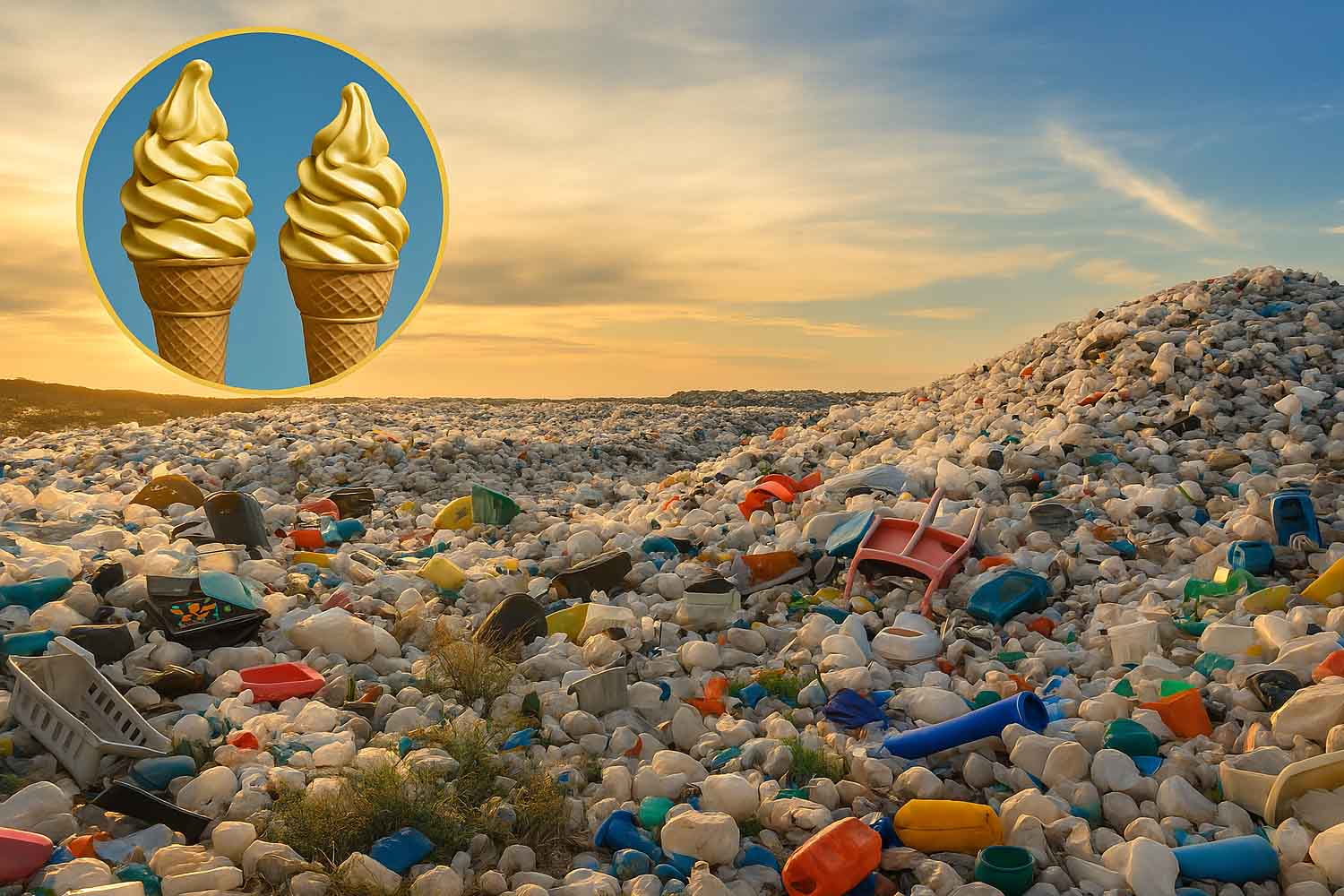Scientists have converted plastic bottles into vanilla using genetically modified bacteria, using an innovative biological process

A team of researchers from the University of Edinburgh has achieved a surprising breakthrough: for the first time, recycled plastic has been turned into vanillin, a compound in high demand across the food, cosmetics, and pharmaceutical industries. The innovation was made possible by genetically engineered E. coli bacteria that can convert the chemical components of plastic bottles into this high-value substance.
Currently, 95% of plastic’s value is lost after just one use, and only 14% of the millions of bottles sold every minute are actually recycled. Even then, recycled plastic is often limited to low-grade uses, like opaque fibers for carpets or textiles. But this new technology could flip that paradigm entirely.
The starting material is polyethylene terephthalate (PET)—the world’s most common plastic used in bottles. Scientists had previously developed mutant enzymes capable of breaking PET down into its base monomers, including terephthalic acid (TA). Now, these monomers have been biologically converted into vanillin using a novel process.
A 79% conversion rate of plastic into vanillin
The method involves cultivating genetically modified E. coli in a microbial broth held at 98.6°F (37°C) for 24 hours—conditions not unlike those used in beer fermentation. The result? A remarkable 79% of the terephthalic acid was successfully transformed into vanillin.
Vanillin from plastic: a sustainable alternative to fossil fuels
Vanillin is far more than just a flavoring agent. It’s a strategic industrial chemical, used in everything from pharmaceuticals to herbicides, household cleaners, and beauty products. In 2018 alone, global demand hit 81 million pounds (37,000 metric tons)—vastly more than can be supplied from natural vanilla pods. Today, around 85% of vanillin is made from petroleum-based synthesis.
Joanna Sadler, who led the study at the University of Edinburgh, stressed the groundbreaking nature of the discovery:
“This is the first time a biological system has been used to upcycle plastic waste into a high-value industrial chemical. The implications for the circular economy are enormous.”
Stephen Wallace, a fellow researcher, added:
“Our work challenges the notion that plastic is just problematic waste. Instead, it shows how plastic can become a carbon-rich resource for making valuable products.”
Next steps: boosting efficiency and scaling production
The research team is now focused on optimizing the bacteria for higher conversion rates and expanding the process to handle larger amounts of plastic. Wallace explained:
“We’re confident we can rapidly improve the process thanks to our automated DNA assembly lab.”
Beyond vanillin, the process could also be tailored to generate other high-value compounds from plastic waste, such as fragrance molecules.
“a brilliant example of green chemistry”
Ellis Crawford of the Royal Society of Chemistry praised the innovation:
“This is a brilliant example of green chemistry. Using microbes to turn plastic waste into valuable resources is a huge step toward sustainability.”
Plastic bottles are the second most common type of plastic waste in oceans, right after plastic bags. This research offers a real, practical path to reduce plastic pollution and drive more effective, profitable recycling systems.
Source: Green Chemistry
